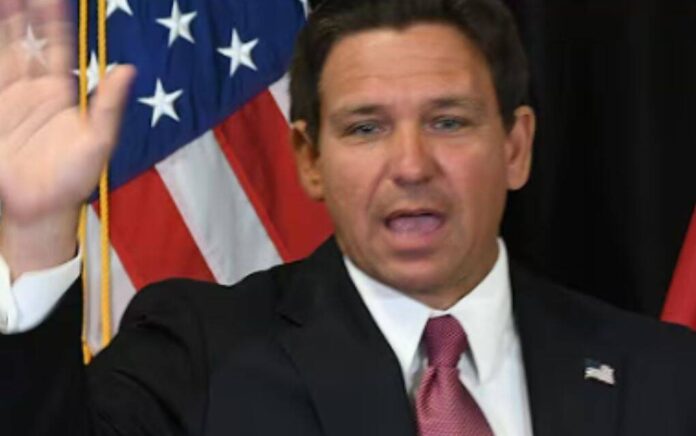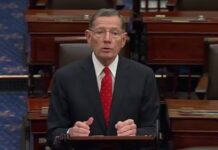
Donald Trump is in the fight for his life. The outcome in 2026 will determine his future.
Now a top Governor from this massive state has hit Trump with game-changing news.
DeSantis’ Push for a New Census and Redistricting in Florida
Florida Governor Ron DeSantis, asserting that the 2020 U.S. Census was inaccurate, announced on Wednesday that the Trump administration is exploring the possibility of conducting a new census before the decade’s end. Such a move, according to the Republican governor, could lead to Florida gaining additional congressional seats.
DeSantis revealed he is actively considering urging the Florida Legislature to revise the state’s congressional map. Currently, Republicans dominate Florida’s congressional delegation with a 20-8 advantage over Democrats.
Typically, states like Florida redraw their congressional and legislative boundaries once every ten years following the U.S. Census. However, with Republicans holding a slim majority in the U.S. House, several states, both Republican- and Democratic-led, are contemplating redistricting before the 2026 midterm elections.
Texas, the second-most populous state, is already pursuing a mid-decade redistricting effort that could secure up to five additional seats for Republicans. Following the 2020 Census, Florida gained one congressional seat. DeSantis, however, insists the census, conducted largely during Trump’s first term and finalized under President Joe Biden, undercounted Florida’s population, potentially depriving the state of another seat.
Speaking at an education roundtable in Tampa, DeSantis noted, “I was told at the tail end of the [first] Trump administration that we were going to get at least two seats and so we were shocked when it came out.” Although he contemplated legal action, he opted against it but said he has discussed the issue with Commerce Secretary Howard Lutnick, stating, “they agree that Florida did not get the population that it should have gotten.”
DeSantis remarked, “I know they’ve considered doing another census,” adding that any new count would exclude undocumented immigrants. The first Trump administration’s attempts to omit certain immigrants from the 2020 apportionment were halted by a Supreme Court ruling and delays caused by the pandemic.
“I hope that they do redo the census, I think Florida would benefit if they redid the census. But even short of that I do think we are going to be looking at the pathways to be able do the redistricting here in Florida,” DeSantis stated.
A mid-decade census would be unprecedented, raising legal and logistical concerns, as the Constitution requires a census every ten years and has always included non-citizens. Florida’s rapid population growth since the pandemic, driven by migration from states like New York and California, could justify such a move. The 2020 Census was launched under Trump, with the next scheduled for 2030.
DeSantis admitted he has not yet discussed redistricting plans with Florida legislative leaders. His influence over the Legislature has waned since his unsuccessful presidential campaign, leading to tensions with key lawmakers, particularly in the Florida House.
Legislative leaders have been cautious about endorsing DeSantis’ redistricting proposal. In the last redistricting cycle, DeSantis pushed through a map that boosted Republican gains by four seats.
That map faced legal challenges, but the Florida Supreme Court, largely appointed by DeSantis, upheld it earlier this month, ruling that lawmakers could bypass minority voter protections established by the 2010 “Fair Districts” amendment.
DeSantis claimed on Wednesday that those protections violate federal law and are likely “unenforceable.” He suggested last week that the ruling could prompt a review of other districts, particularly in South Florida.
Florida Democrats vowed to oppose any attempts to manipulate the system. State Representative Fentrice Driskell, the House Democratic leader from Tampa, warned, “Any mid-cycle redistricting would still need to comply with the rest of Fair Districts and would open us up to all new rounds of expensive state and federal litigation.”



















